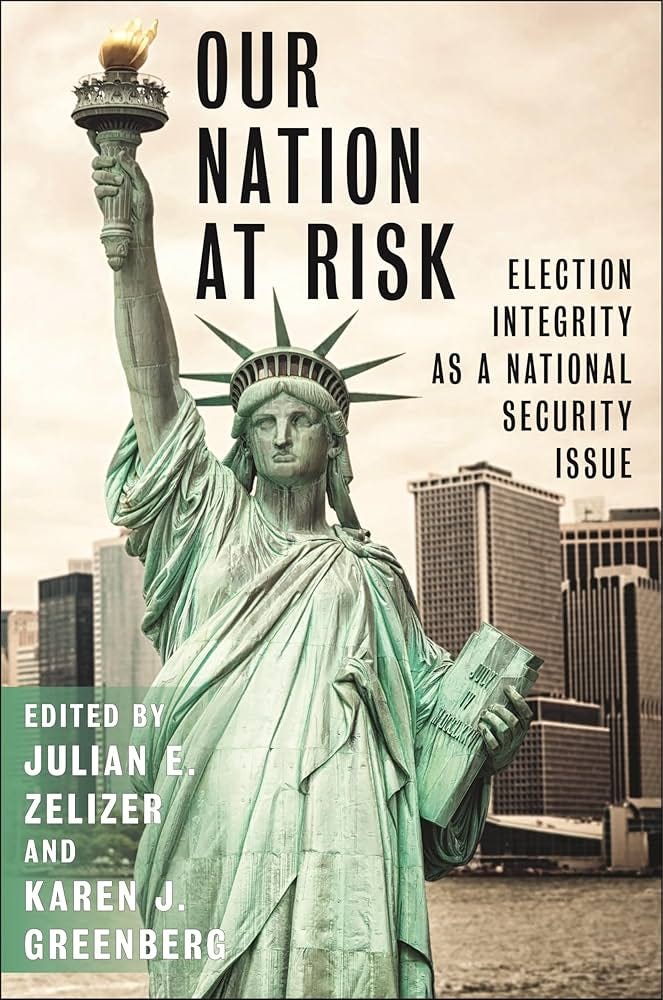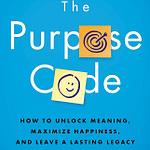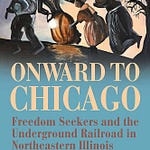It’s an election year as you no doubt know. Remember issues? They used to be a major component of a presidential campaign.
Then we had 2016 when smears and misinformation took center stage. That led to 2020, the year of the pandemic, where cries of foul over the winner culminated in the Jan. 6 insurrection.
In retrospect, the 2020 election may have been a nightmare but it was also a wonder. That’s one of the views expressed in Our Nation at Risk, a new book from New York University Press that looks at election integrity as a national security issue.
“Facing unprecedented challenges related to the COVID-19 pandemic, the nation’s army of administrators managed an election that featured the highest voter turnout in a century with two-thirds of the eligible electorate casting nearly 160 million votes,” noted Stanford University law professor Nathaniel Persily’s essay in the Our Nation at Risk, a collection edited by Julian Zelizer, a Princeton University history professor, and Karen Greenberg, director of the Center on National Security at Fordham University Law School.
Voting by mail doubled in the 2020 election over 2016 while curbside voting and ballot drop boxes were offered to limit the spreading of infection.
Yet 357 (state and national) legislators sought to discredit the 2020 election. Despite 60 different attempts—all unsuccessful—to have voter fraud stand up in court, the narrative of a fixed election continued largely through complaints made by former president Donald Trump.
Given that Trump is back on the ballot, one can only assume it will be another contentious election.
Our Nation at Risk outlines three pillars of the democratic system: the Electoral College, the right to vote, and contributions made by other institutions such as the press.
The formal vote for the Electoral College (following the Nov. 6 election) was used by more legislators than ever before in 2020 as to reverse the election. “That so many lawmakers (seven Senate Republicans and 140 House Republicans) would vote to reverse the results of a presidential election based on an obvious falsehood (that the presidential election was subject to massive, multistate fraud while the lawmakers’ own elections were not) showed how loyalty to, and fear of, Trump and his ardent supporters was deep enough for Republicans to abandon Congress’s role as a neutral arbiter of elections and treat the Electoral Count Act as a way to advertise their loyalty to Trump or carry out a self-coup,” noted Matthew Green in Our Nation at Risk.
The right to vote has been an issue in the United States since the country was established in the 18th century when only white male citizens 21 and older could vote. The Fifteenth Amendment, ratified in 1870, required that individuals could not be denied the vote based on race. But states found ways around that. It wasn’t until the Voting Rights Act of 1965 that the federal government was able to knock down state requirements on who could vote. Court rulings in recent years, however--specifically a Supreme Court decision in 2013--have weakened this landmark voting legislation.
Newspapers used to play a major role in the nation’s election process. They provided background on both candidates and issues while serving as a forum for citizens’ views (as anyone can attest who can recall short but effective letters to the editor). Many newspapers, especially those in smaller communities, no longer have the staff to provide comprehensive election packages.
Now television and the internet serve as the major platforms for citizens to receive information about the election. TV tends to focus on national issues while the online scene gets more congested with every passing year. In some ways, the 2024 election may feature even more misinformation than 2020. Nicole Hemmer notes in Our Nation that Twitter, renamed ‘X’ after being bought by Elon Musk in 2022, has stripped away nearly all its integrity tools and now regularly boosts accounts that spread misinformation.
Recent efforts to assist states in policing elections included the Electronic Registration Information Center, a voluntary clearinghouse for states to share information on voters who might move from state to state. Louisiana, Alabama, West Virginia, Iowa, Missouri, Ohio, Florida and Texas have all left the information center “since 2020 even though officials in those states previously praised the programs as a tool for fighting fraud,” noted Persily.
As co-editor Karen Greenberg noted in looking ahead to 2024 results, “The dangers to democracy of a contested election are now indisputably clear…let’s keep our fingers crossed.”















Share this post